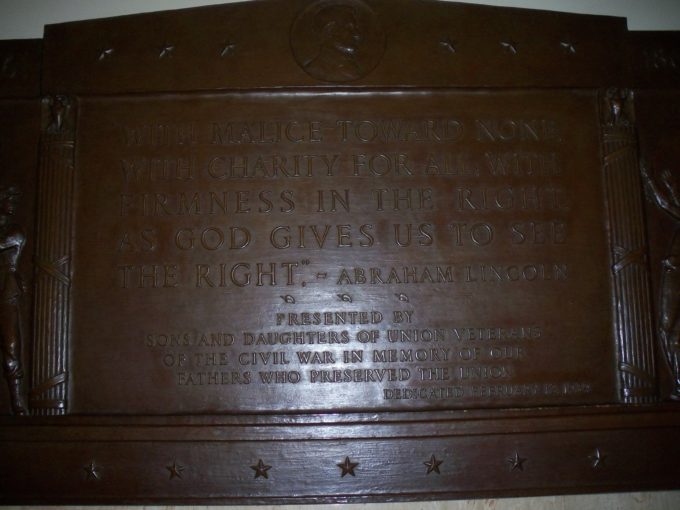
Monday, 27 July 2020
But these speak evil of whatever they do not know; and whatever they know naturally, like brute beasts, in these things they corrupt themselves. Jude -10
The word “but” connects the reader back to the preceding verses that refer to speaking evil of dignitaries and when the Archangel Michael would not bring a reviling accusation against Satan but rather said, “the Lord rebuke you.” With that in mind, Jude says, “But these speak evil of whatever they do not know.” “These” refers to those “dreamers” of verse 8 who “defile the flesh, reject authority, and speak evil of dignitaries.”
Of them, Jude notes that in their evil speaking, they do so in what they do not know. What they speak of is completely beyond their ability to grasp. This is contrasted to Michael who knew very well that Satan was a fallen angel, that he was guilty before God, and that he had no right to Moses’ body. And yet, with all of that known information, he still withheld any reviling accusation. He is setting an absolute contrast between the two. From there, he continues his thoughts about these vile people by saying, “and whatever they know naturally.”
The translation, following the KJV, is a bit unfortunate. Two different words are translated as “know.” The first speaks of mental comprehension or knowledge. The second of knowledge by prolonged acquaintance. One observes and then understands. Thus, their understanding is based on their own limited observance and instinct. Hence, what they know naturally is “like brute beasts.”
The word phusikós, translated as “naturally,” is found only here. It signifies “by instinct.” In other words, there is no clarity of thought, no reasoning of the mind, no elevating of the person to live beyond the most basic of animal instincts.
It is interesting how different translators describe them – brute beasts, irrational animals, unthinking animals, unreasoning animals, senseless animals, wild animals, creatures without reason, dumb animals, creatures of instinct, dumb beasts, irrational beasts, and so on. Each is an excellent way to biblically define such people. They have the minds of mere animals – unreasoning, sensuous, unclear in thought, and directed to only that which is base and shallow. Jude then finishes with, “in these things they corrupt themselves.”
The idea of these words is that the longer they go without clearly thinking things through, the more debauched they become. Eventually, there is only the instincts of perversion, senseless waste, blind obedience (if a follower of such people), and so on. In the end, there is only a corrupted person not fit for life in a properly functioning society.
It is the state of the people of Jerusalem as described by the prophet Zephaniah –
Woe to her who is rebellious and polluted,
To the oppressing city!
2 She has not obeyed His voice,
She has not received correction;
She has not trusted in the Lord,
She has not drawn near to her God.
3 Her princes in her midst are roaring lions;
Her judges are evening wolves
That leave not a bone till morning.
4 Her prophets are insolent, treacherous people;
Her priests have polluted the sanctuary,
They have done violence to the law.
5 The Lord is righteous in her midst,
He will do no unrighteousness.
Every morning He brings His justice to light;
He never fails,
But the unjust knows no shame.
6 “I have cut off nations,
Their fortresses are devastated;
I have made their streets desolate,
With none passing by.
Their cities are destroyed;
There is no one, no inhabitant.
7 I said, ‘Surely you will fear Me,
You will receive instruction’—
So that her dwelling would not be cut off,
Despite everything for which I punished her.
But they rose early and corrupted all their deeds. Zephaniah 3:1-7
The roaring lions and the evening wolves of the city, unclear in their thinking and brutal in their actions, led the people astray. The prophets and the priests were treacherous and defiled. In the end, all of the people became corrupted, without shame, and failed to honor the God who established them as a people.
Life application: The people described by Jude are the type that diminish the absolute reliability of God’s word, even when they have no idea of the depth and intricacy of the riches it contains. They may be intelligent by the world’s standards, but they have no concept of the true knowledge which comes from God.
Many modern churches are full of such people. They promote tolerance, inclusion, and perversion. At the same time, they diminish morality, godliness, and holiness. The things they rely on for their doctrine come from the flesh and from humanistic viewpoints. They are like “brute beasts.”
This wouldn’t be so sad if it only referred to those coming off the streets, but by infiltrating the churches and moving into the hierarchy, such people take along precious souls in their corruption. By doing so, they remove the very chance for salvation that these people originally came looking for. Jesus spoke of this type –
“But woe to you, scribes and Pharisees, hypocrites! For you shut up the kingdom of heaven against men; for you neither go in yourselves, nor do you allow those who are entering to go in.” Matthew 23:13
Lord God, how sad it is to think that so much wickedness pervades Your church in this day and age. There is a rejection of your word. In place of it, there is a tolerance for that which is unholy and grotesque. Open the eyes of those who come looking for You that they may see the disgusting and twisted attitude of such people. Help us to keep our eyes on Jesus, our hearts tender toward what is proper, and our lives pure and spotless as we live in Your presence. Amen.




